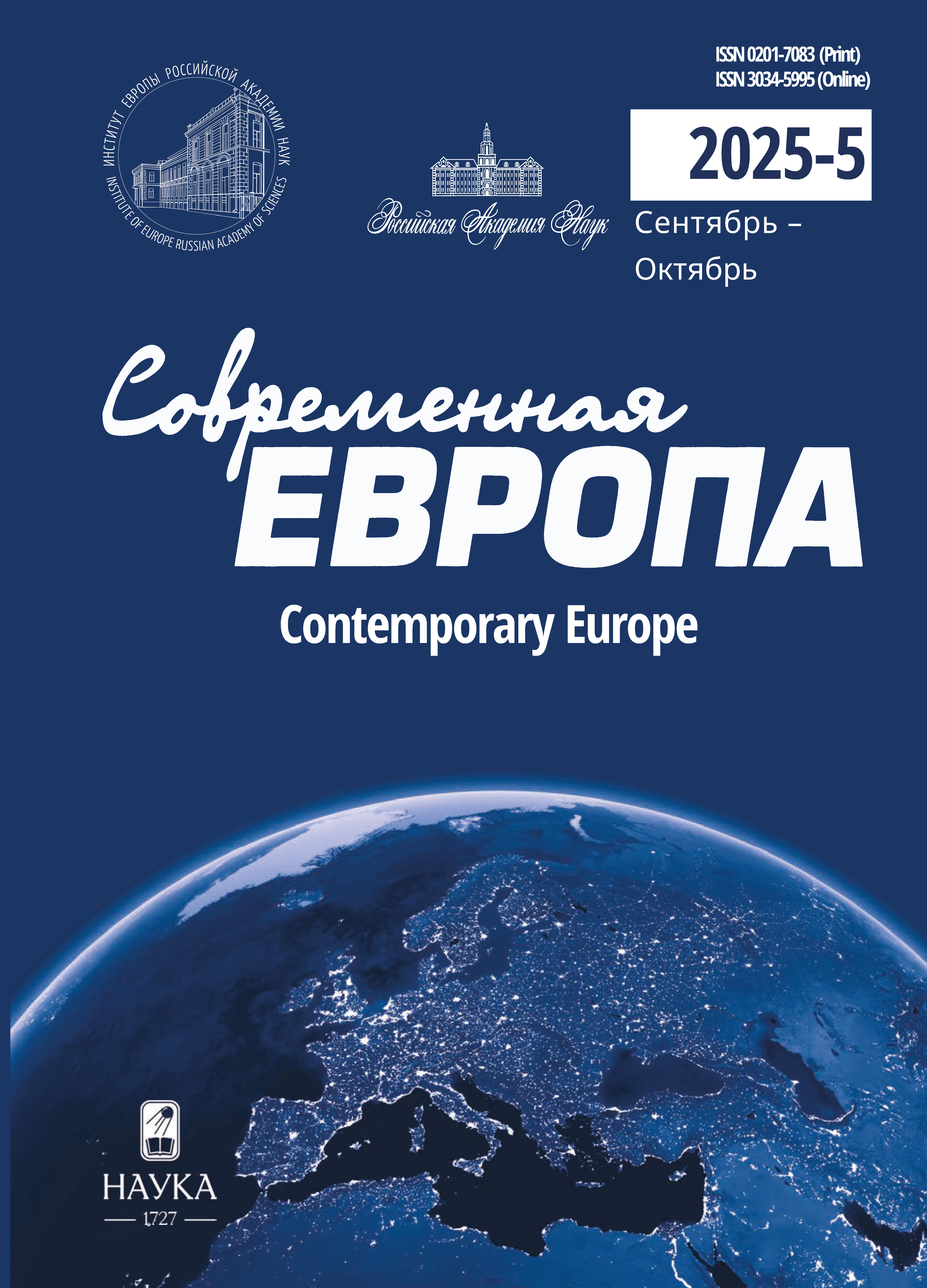Model of “soft” and “hard” euroscepticism: Estonian case
- Authors: Tambi S.A.1
-
Affiliations:
- MGIMO-University
- Issue: No 5 (119) (2023)
- Pages: 211-219
- Section: Articles
- URL: https://rjsvd.com/0201-7083/article/view/652220
- DOI: https://doi.org/10.31857/S0201708323050170
- EDN: https://elibrary.ru/XZZTSN
- ID: 652220
Cite item
Abstract
The article explores the features of party Euroscepticism on the example of the Estonian case. A classification of a number of modern Estonian political parties is given on the basis of their classification as “hard” or “soft” Eurosceptics. Based on this typology the author structured the Estonian party-political landscape on the issue of European integration. The importance of this factor in the Estonian party-political space, which influences the further course of European integration in this Baltic state, is highlighted. The scale of anti-European sentiments in modern Estonia has been determined. The study identifies the reasons for the significant increase in electoral support for parties advocating anti-EU positions. It is revealed that the Conservative People’s Party of Estonia (CPPE) demonstrates a consistent increase in the number of its members and is gaining more and more popularity among the Estonians and has an ever-increasing influence on Estonian politics. Represented in Parliament since 2015, the CPPE has achieved in 2019-2021 its entry into the government coalition. It is considered how the CPPE, which previously occupied a marginal position, is implementing its goal of gradually increasing its influence and entering the political forefront. Taking into account the analysis of the latest election program of the CPPE (for the parliamentary elections in March 2023), it was determined in which direction the radical Estonian populists are moving. At present the trend towards a steady increase in Euroscepticism in Estonia has changed to a course towards relative stabilization of the Eurosceptic mood of voters. Discursive and institutional methods were applied in the study.
About the authors
Sergey Aleksandrovich Tambi
MGIMO-University
Email: sergey.tambi@gmail.com
Moscow, Russia
References
- Браницкий А.Г., Савов Д.Д. (2011) Евроскептицизм в Польше: причины, проявления и последствия. Власть. № 12. С. 152-153.
- Вайнштейн Г.И. (2015) Евроскептицизм: новый фактор европейской политики. Мировая экономика и международные отношения. № 8. С. 40-48.
- Воротников В.В., Носатова А.Ю. (2019) Государства Балтии в ЕС (2004-2019): социальное измерение. Вишеградская Европа. Центральноевропейский журнал. №. 1-2. С. 59-73.
- Корсакова А.А. (2017) Евроскептицизм как сдерживающий фактор интеграции в ЕС. Актуальные проблемы современных международных отношений. № 10. С. 62-68.
- Ланко Д.А., Ланцова И.С. (2020) Национализация партийной системы Эстонии в 2005-2019 гг. Балтийский регион. Т. 12. № 1. С. 16-31. doi: 10.5922/2079-8555-2020-1-2
- Осколков П.В. (2017) Правый популизм в современной Эстонии. "25 лет внешней политике России": сб. материалов Х Конвента РАМИ (Москва, 8-9 декабря 2016 г.). В 5 т. Т. 2: Россия и современный мир: политика и безопасность. В 2 ч. Ч. 1. Под общ. ред. А.В. Мальгина. МГИМО, Москва. С. 467-481.
- Узнародов И.М. (2015) Евроскептицизм после кризиса. Современная Европа. № 1(61). С. 26-27. doi: 10.15211/soveurope120152636
- Шибкова М.О. (2019) Популизм и евроскептицизм: соотношение понятий. Современная Европа. № 4(90). С. 119-128. doi: 10.15211/soveurope42019119128
- Auers D., Kasekamp A. (2015) The impact of radical right parties in the Baltic states. Transforming the Transformation? The East European Radical Right in the Political Process. Ed. by M. Minkenberg. Routledge, London, UK. P. 235-248.
- Hartleb F. (2011) A Thorn in the Side of European Elites: the New Euroscepticism. Wilfried Martens Centre for European Studies, Brussels, Belgium. 63 p.
- Szczerbiak A., Taggart P. (2002) The Party Politics of Euroscepticism in EU Member and Candidate States. SEI Working Paper. No. 51. 33 p.
- Toomla R. (2021) Eesti valitsused 1991-2021: kujunemised, kriisid, kukkumised. Tartu Ulikooli Kirjastus, Tartu, Estonia. 424 p.
- Toomsalu T. (1999) Toopartei ei taha Euroopa Liitu. Sonumileht. No. 20. 26. Jaanuar. P. 8.
Supplementary files











